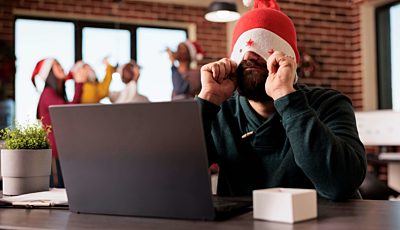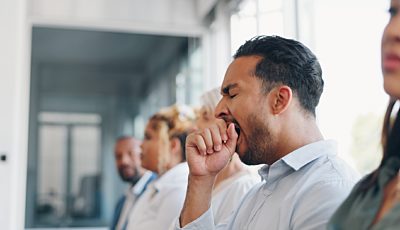

Joe Humphrey: How BGSA changed my life!
February 14, 2019
What was your career path to the Armed Forces? What attracted you?
I always knew I wanted to join the Forces. When it came to making career decisions in school, I researched the different areas and found that the Royal Marines was the hardest to get into. I saw that as a challenge so my mind was made up there and then: I knew I had to apply. I’d been into action and adventure from a young age so it seemed like the perfect fit.
What earliest memory of wanting to be in the Forces?
I suppose my earliest memory was when my parents bought me a soldier’s outfit (complete with a helmet and plastic toy gun) for my eighth or ninth birthday. I felt right at home!
Did you feel like you had got your dream job?
Absolutely, I loved it! I knew straight away that it was what I was meant to do. Of course, there were times when I felt like quitting and like I wouldn’t make it through, but I persevered because it was my calling.
What happened with the injury, what was the lead up, what was the job like up to that point, what happened?
I was on my second tour of Afghanistan and had been doing lots of missions to engage the enemy and secure new areas. I’d been there for seven months already and was on one of my last patrols before being due back in the UK five days later. We were tasked with stopping a sniper who had been harassing local villagers and the coalition forces, but we couldn’t find him anywhere so headed back to our base. On the way back, I turned around to check behind me and there he was – he’d been watching us the whole time. He shot me in my backside. The bullet severed my femoral artery and the surrounding nerves, broke my femur and came out the front of my thigh. I’m lucky to be alive really!
What happened afterwards?
My mates came to lift me away and get me in a helicopter to Camp Bastion. From being shot to being on the operating table took just 17 minutes. I was then put into a coma for two weeks and next thing I know I’m waking up in the Queen Elizabeth Hospital in Birmingham. I still had my leg at that point, but it was getting infected so a week later I took the decision to have it amputated.
How did you feel mentally and physically?
Up until the amputation, I felt physically very ill, but once it was taken off I felt right as rain. I also coped surprising well mentally. The way I saw it was that I knew what I was getting into and just happened to be one of the unlucky ones. A lot of my friends had lost limbs before me, so when they came to visit me in hospital wearing their prostheses, it gave me a boost and reassured me that everything would be okay.
At what point did you start thinking about a new career, or a getting a job in general?
As soon as I woke up from the amputation, I knew I couldn’t be a Marine anymore. Luckily, they kept me on for three years of rehabilitation, though. They wouldn’t let me leave until I had a roof over my head and had retrained, which helped to soften the blow.
So what did you do?
After rehab, I joined GB Canoeing and did that full-time for two years. Alas, I never made it to Rio, but I had a fantastic time. It was a very selfish sport, though, and I missed the social aspect of work, so I started to look for my next challenge.
How did you end up getting the job at Bear Grylls Survival Academy?
My friend, James, was an instructor there already and recommended the role. It definitely appealed to my love of the outdoors and adventure, so I went on the instructor's course in 2014 and have been working there since!
What did it mean to you getting the job?
I’d missed the camaraderie that came with being in the Forces and I felt I got that back when I joined BGSA. There were a lot of like-minded people there so I felt comfortable straight away and I was excited to get back in the great outdoors.
What was the first day like?
My first job was actually a two-week TV shoot for Bear Grylls Survival School, working as a survival consultant to keep the crew and children safe. It was the first time I’d met Bear and it was great to get to work so closely with him – he’s definitely a big inspiration of mine.
What do you love about the job?
I really thrive off being in challenging environments: no two days are ever the same. I love that I get to do all the fun adventure activities like abseiling and waterfall jumping, but I also get to teach people important survival skills: how to light a fire, build an emergency shelter, forage for food, find and purify water.
How has it felt to be working and, excuse the pun, back on your feet!
Brilliant. I’m back to the stage where I don’t consider myself at a disadvantage – there’s not a lot I can’t do! I always try to do something as well as, if not better than, I would have done it before my injury. I’m also quite competitive so I push myself to do it better than those around me, too!
What advice would you have for someone facing similar adversity?
We all have strengths and weaknesses, but a lot of people focus on practising the skills they’re already good at for fear of failure or embarrassment. My advice is to work on your weaknesses and don’t be afraid of failing. Eventually, your weaknesses will become your strengths.














































